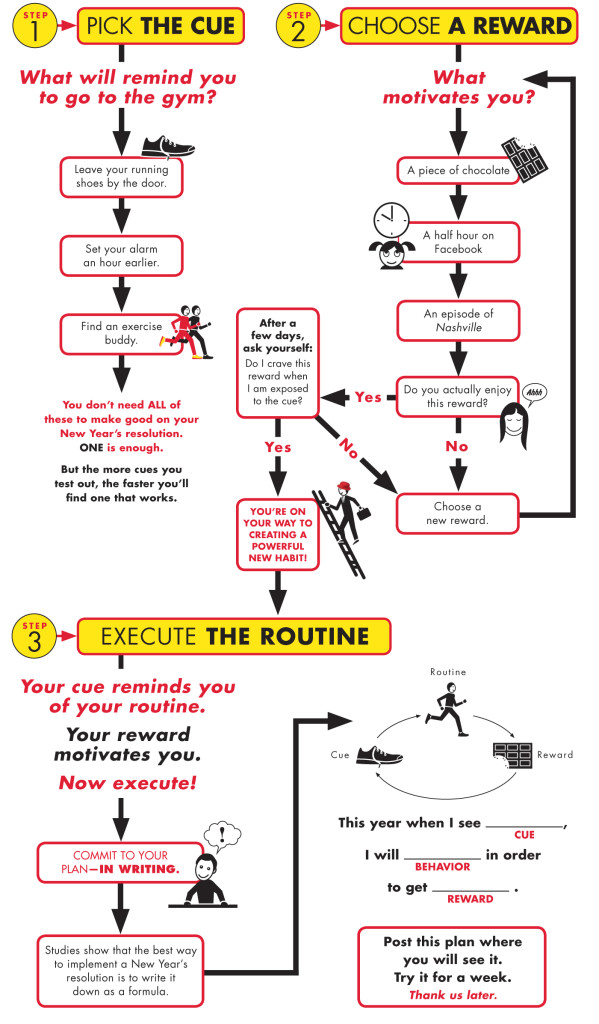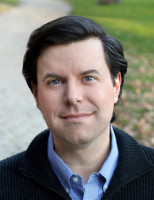
The Power of Habit
by Charles Duhigg
Published: January 1, 2011
Genres: Non-fiction, Self Help
Format: eBook (286 pages)
Source: Library
moreIn The Power of Habit, award-winning New York Times business reporter Charles Duhigg takes us to the thrilling edge of scientific discoveries that explain why habits exist and how they can be changed. With penetrating intelligence and an ability to distill vast amounts of inf...
Is it cheesy to say The Power of Habit changed my life? Well it has. I finished this book yesterday and today I decided to change one of my bad habits that I’ve had my whole life. Using the steps in the book I quickly found out that my bad habit was a distraction for me from my stress and within three hours I learned that I had no clue how to deal with my stress. It was funny because I discovered something about myself that I hadn’t realized before. I’m better at dealing with large, life changing stress than I am about dealing with the small everyday stresses of life like a cluttered house and dirty dishes.
I used my bad habit to distract myself all day long and suppress my stress and anxiety so I didn’t have to think about the things that were bothering me. I completely broke down within four hours and called my husband in tears telling him I just didn’t know what to do. How DO people deal with stress? I talked it out instead. Some of the stresses we came up with plans to change and some seemed to go away just from talking about them. My husband was a little shocked and saddened when he realized how often I must be stressed (because I do my bad habit all day long). Yeah, I can’t believe how much I am stressed out either and I’ve been running from it too which I’m sure just adds to my stress.
After I talked things out I blogged for an hour which helped me relax and the temptation for my bad habit was gone for the time being. It came back in full force later that day when my son’s bus was late. I couldn’t find a distraction big enough to stop thinking about all the many, many things that could have gone wrong (my imagination uses it’s power for evil sometimes), so I did some serious praying to calm my racing heart. His bus got there 5 minutes later and I survived, though honestly I was a little shaky and it felt like my heart was racing. I’ve got a lot of work ahead of me to learn good stress management and I’ll probably need another book for that. :) I’ve tried and failed many times to change my bad habit over my life time feeling like I’m worthless or that I’m a bad person or that there was something wrong with me, but I don’t feel like that anymore.
It is critical to understand that self-control doesn’t fail because the person cannot muster the needed resources. Instead it fails because the effort seems too great for the payoff.
-Charles Duhigg, The Power of Habit (Footnote 5.6)
I can tell you for a fact that my habit is going to be just as hard to change as it’s always been but I have faith now that I can do it. And that faith is something I’ve never had before. Also, if you have any stress management books I would be very much interested in them. :)
I flew right through this book. It is truly fascinating how our brain works. Our brain is literally designed to make everything it can a habit to save energy and resources. Once you figure out how it works you can “program” your brain to do anything without even thinking about it. I highlighted the heck out of this book.
Here are some of my favorite things I highlighted while reading:
- Habits never disappear. You can replace the bad habits but without faith in God or the belief that you can in fact change, old habits can come back.
- If you want to change a habit, use the same cue, provide the same reward but get a new routine.
- It’s interesting how new habits form. Toothbrushing was from an ad campaign.
- Pick a reward you crave. That’s the key to lasting habits.
While I am still working on changing my bad habit, I did successfully create a new habit. Exercising. I hate exercising. I always have. To be honest I STILL hate exercising but I do it regularly now. Why? I used the tools in this book. My cue is my son going to preschool. It’s at the recreation center so I wear my workout clothes when I drop him off and just walk around the indoor track the whole time he is in school and pick him up when I’m done. I can get two miles in about an hour. There’s an old guy that teases me when he passes me. Whatever. My 28 minute mile is an awesome pace. My reward is what keeps me doing this. I listen to audiobooks which I look forward to. Exercise is boring to me but audiobooks make the time fly by. I crave my alone time and listening to good books. I would be sad now if I didn’t exercise.
I had a friend ask me (after I told her about how much I loved this book) what the basic steps were for changing a habit, so here they are:
- Identify the routine
- Experiment with rewards (try different routines that give different rewards)
- Isolate the cue (Location, Time, Emotional State, Other People, Immediately Preceding Action)
- Have a plan
In handy infographic form if you’d like :)
Overall, this was a self help book that truly changed my life and I think everyone should read it.
Content Rating: Medium, for two uses of strong language (n word and f word).
This post contains affiliate links and I receive a small percentage of sales made through these links.
Reading this book contributed to these challenges:









 My name is Jessica. I love to read Young Adult and classic literature. I’ve been a book blogger for six years and I haven’t gotten tired of it yet. I’m a very curious reader. Writing about all the questions and thoughts I had while reading a book is the best hobby ever.
My name is Jessica. I love to read Young Adult and classic literature. I’ve been a book blogger for six years and I haven’t gotten tired of it yet. I’m a very curious reader. Writing about all the questions and thoughts I had while reading a book is the best hobby ever.
Cool! I liked that chart a lot. All of that made sense, and I want to read this book now!
Deep breathing can be super helpful for managing stress. For it to be most effective, you need to practice the technique when you aren’t stressed. A book that I use a lot with patients is The Relaxation and Stress Reduction Workbook by Martha Davis et al. The price isn’t too bad on Amazon. I bought a slightly older edition for about $1 too.